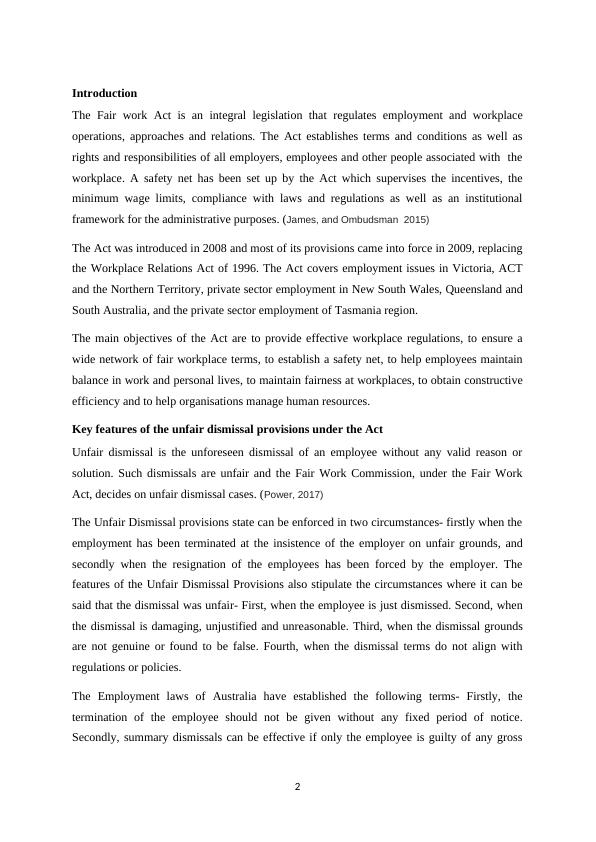Protection from Unfair Dismissal under the Fair Work Act 2009
5 Pages1534 Words328 Views
Added on 2023-06-10
About This Document
The Fair Work Act 2009 provides protection from unfair dismissal to employees. This article discusses the key features of unfair dismissal provisions and how they promote fairness, efficiency, flexibility, and employment security. It also highlights the negative consequences of the Act and the importance of aligning organizational policies with legalities and laws.
Protection from Unfair Dismissal under the Fair Work Act 2009
Added on 2023-06-10
ShareRelated Documents
End of preview
Want to access all the pages? Upload your documents or become a member.
Labour Law Overview in Australia
|5
|945
|67
WHS Human Resource Management Answer 2022
|38
|5945
|29
Case Study on Employment Law
|6
|1456
|31
Isobel's Claim of Unfair Dismissal and Termination by Barry
|9
|2116
|246
Unfair Dismissal Law and Employees
|10
|2788
|226
The Employment Law Name of the University Name of the student Name of the university Author note Introduction
|11
|2382
|233


